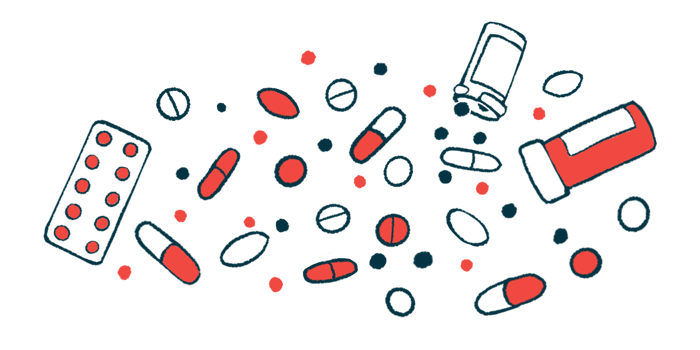Orladeyo effective in 3 people with HAE of unknown origin
The therapy prevented swelling and improved life quality, case studies reveal

Treatment with Orladeyo (berotralstat) effectively prevented swelling and improved life quality for three people with hereditary angioedema (HAE) with no known disease-causing mutations.
“Our results provide the first evidence that [Orladeyo] can be an effective therapy in patients with HAE [who do not have any known mutations],” scientists said in the study, “Significant response to berotralstat in three patients with hereditary angioedema of unknown origin,” published in The Journal of Allergy and Clinical Immunology: In Practice.
Most cases of HAE are caused by mutations in the gene SERPING1, which provides instructions to produce the C1-inhibitor (C1-INH) protein. However, there also are people with HAE who don’t have any known HAE-causing mutations, who are characterized by recurrent angioedema, normal C1-INH, and are unresponsive to treatments targeting immune mast cells.
Here, researchers described the cases of three people with HAE who, despite sequencing of their entire genetic code, did not have any mutations known to cause HAE. The three patients all were started on treatment with Orladeyo at a center in Germany.
Orladeyo is an oral therapy that works to block production of bradykinin, a signaling molecule whose overactivity drives swelling in HAE. The therapy is widely approved as a prophylactic (preventive) therapy to reduce the risk of swelling attacks in HAE.
Clinical trials have shown that Orladeyo can effectively prevent HAE swelling attacks; however, trials of the drug included only patients with HAE caused by mutations in SERPING1.
“As of yet, no data are available on the effects of [Orladeyo] in HAE patients who do not have HAE [caused by SERPING1 mutations], including patients with HAE due to other known causative mutations and patients with HAE [who do not have any known mutations],” the researchers wrote.
The approved dosing schedule for Orladeyo is once daily with food. But the therapy is known to cause digestive side effects, especially when patients first start treatment.
‘Berlin protocol’ was used
The three patients here were given the therapy according to the so-called “Berlin protocol” used at this German center, which is intended to reduce these side effects. In this protocol, Orladeyo is first given every three days, then increased based on tolerability to every other day, and finally to daily dosing.
“We found that the step-up dosing approach appears to lead to lower rates of or less pronounced side effects when compared to the standard protocol,” the scientists wrote, noting that further studies to directly compare the dosing schedules might be valuable.
Two of the patients reached once-daily dosing within two weeks of starting treatment. The third reached daily dosing after about two months.
For all three patients, the rate of swelling attacks decreased markedly after starting on Orladeyo. In the month before starting treatment, two of the patients had each experienced four swelling attacks. In the months that followed, however, each of these patients experienced just one or no attacks per month.
The third patient had experienced nine attacks in the month before starting Orladeyo, and monthly attack rates declined notably over the first few months of treatment. In the sixth month on Orladeyo, this patient had three swelling attacks.
Quality of life scores improved
Prior to starting Orladeyo, all of the patients had scores higher than 60 on the angioedema quality of life questionnaire (AE-QoL). Higher scores on this standardized measure reflect poorer quality of life. After six months on Orladeyo, all three patients reported improved life quality, with AE-QoL scores dropping below 40 points.
Orladeyo is sold by BioCryst Pharmaceuticals. The company was not directly involved in this study, though some of the scientists disclosed having previously received funding from BioCryst.







